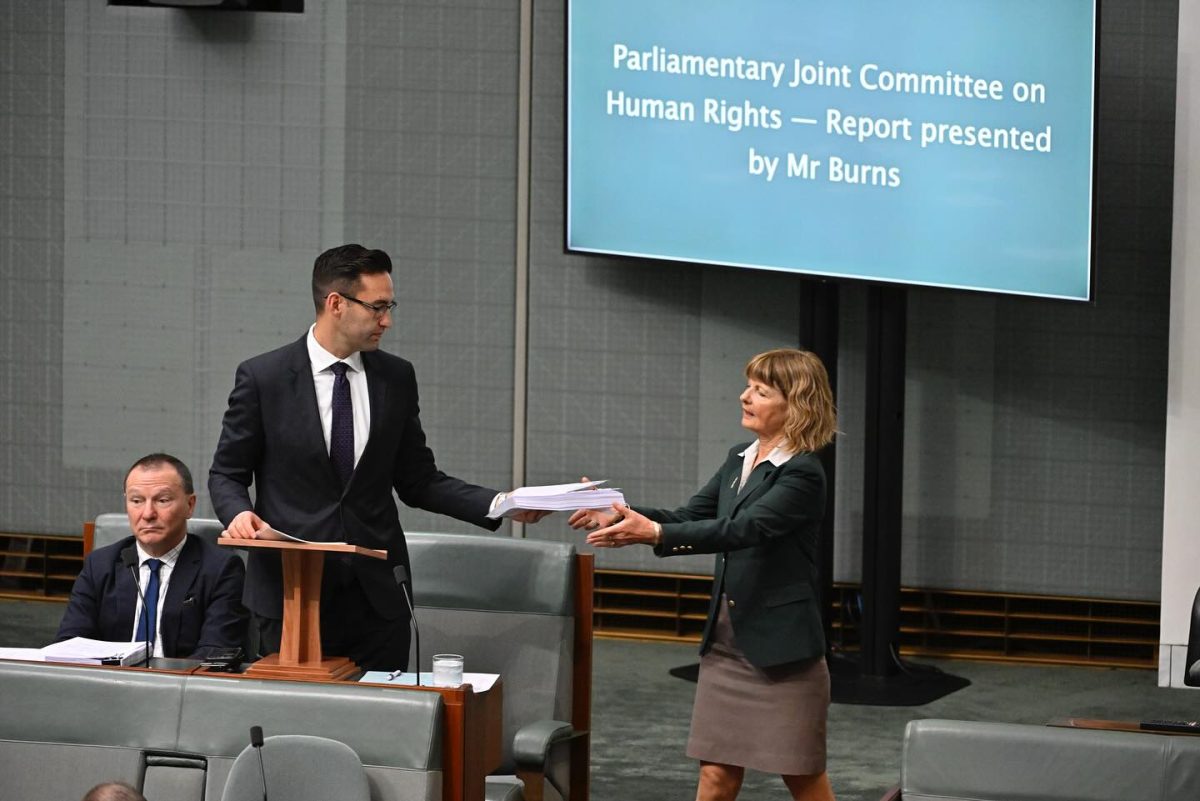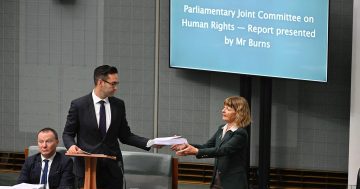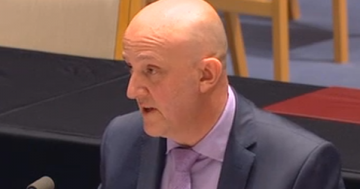
Labor MP Josh Burns chaired the parliamentary inquiry into human rights. Photo: Facebook.
A new parliamentary report has recommended Australia pass a Human Rights Act that would make it illegal for any public authority to ignore human rights.
The Parliamentary Joint Committee on Human Rights, chaired by federal Labor MP Josh Burns, tabled its inquiry report regarding Australia’s Human Rights Framework.
The committee has made 17 detailed recommendations, including that the government re-establish and significantly improve the framework.
This would include “comprehensive and effective protection of human rights in legislation, through the establishment of a Human Rights Act”.
The report attracted immediate controversy, with the Coalition rejecting its findings and recommendations.
The Opposition said any such legislation would place excessive restrictions on freedoms of expression, particularly freedom of religion.
In his report, Mr Burns said Australians expected their rights and freedoms to be protected and respected.
Describing human rights as the basic rights and freedoms applying to all people regardless of their background or belief, based on principles of dignity, equality and mutual respect, Mr Burns said the idea of a ”fair go” and an egalitarian society was the very idea of human rights.
“On the whole, we can be rightfully proud of our system of democratic governance and vibrant, multicultural society,” he said.
“However, while Australians expect a fair go should be given to all, our laws and practices do not always match these expectations.
“As the evidence provided to this committee, and numerous previous inquiries, has amply demonstrated, there are significant human rights problems in Australia that must be addressed – from our relationship with Aboriginal and Torres Strait Islander peoples, the protection of privacy in the digital age and the treatment of minority groups, to name just a few.”
Reshaping the human rights framework would also involve: a significant and ongoing commitment to national human rights education; requirements for public servants to fully consider human rights in the development of legislation and policies; enhancements to human rights parliamentary scrutiny; enhancements to the role of the Australian Human Rights Commission; a review of Australia’s legislation, policies and practices for compliance with human rights; and measures to monitor progress on human rights.
During its inquiry, the committee received 335 public submissions and more than 4000 form or campaign letters, and held six public hearings featuring evidence from a range of community groups, religious organisations, government bodies and other experts.
All 4000 form letters were in support of a Human Rights Act and of the submissions, more than 87 per cent were in favour and only 4 per cent were opposed.
The Australian Human Rights Commission submitted a proposal for a Human Rights Act.
“As overwhelmingly supported by submitters, Australia needs a statutory Human Rights Act, as part of a revitalised human rights framework, to make rights real in everyday decision-making,” Mr Burns said.
“The Robodebt Royal Commission showed us what happens when officials, both elected and unelected, fail to properly consider the effect of government action on the rights of vulnerable people.
“A statutory model of a Human Rights Act (rather than constitutional protection) respects parliamentary sovereignty – ensuring our elected representatives can continue to make the laws parliament deems necessary.
“But with a Human Rights Act in place, Parliament would need to expressly consider human rights when making laws, and Commonwealth public authorities would need to consider rights when making decisions and act compatibly with rights (unless parliament specifically directs them otherwise).”
This model would enable complaints against public authorities to be conciliated by the Australian Human Rights Commission.
The commission’s president Rosalind Croucher welcomed the committee’s report and urged the government to act on its recommendations.
“Human rights are not adequately protected at the national level. Whenever laws are made, their impact on people’s rights and wellbeing should be front of mind,” Professor Croucher said.
“We have before us a once-in-a-generation opportunity to anchor the protection of basic rights in law. The time is right to strengthen Australia’s human rights framework.
“We all deserve to be treated with dignity and respect, no matter who we are or where we live.
“A Human Rights Act would embed these values into public life and promote better understanding of human rights.
“It would give people access to justice if their rights are violated and make governments more accountable for protecting human rights – no matter which party is in power.”
Original Article published by Chris Johnson on Riotact.











